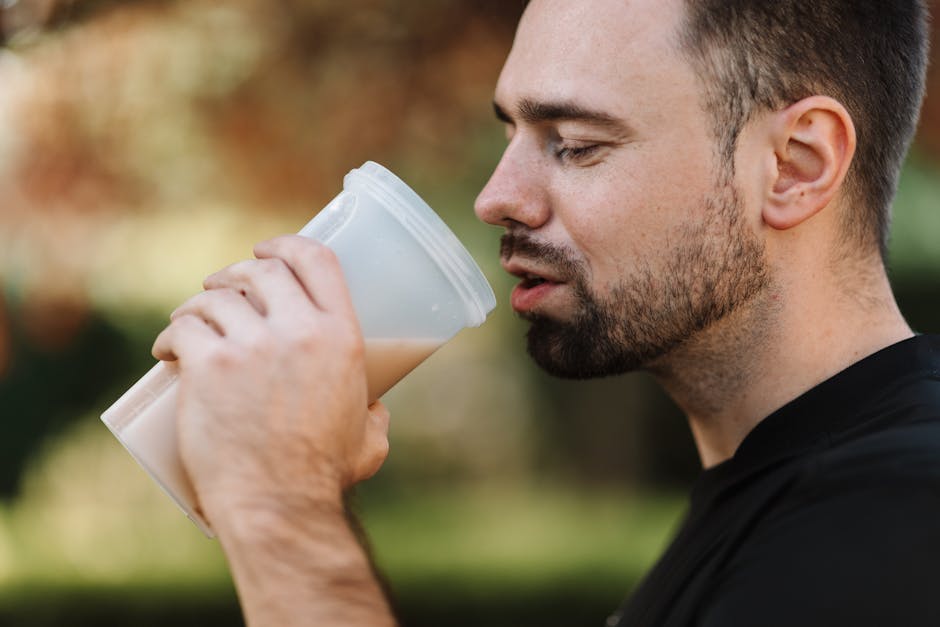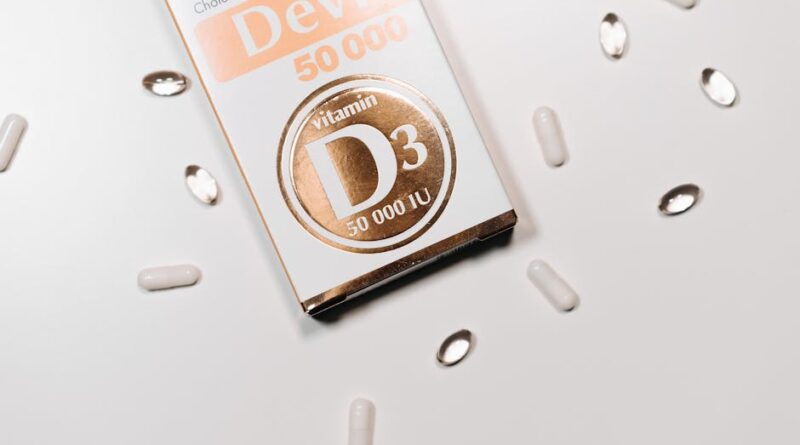The Role of Vitamin D in Muscle Health
When we think about our overall health and well-being, we often focus on aspects such as diet, exercise, and mental wellness. However, one crucial element that sometimes goes overlooked is the role of vitamins and minerals in our body’s functions. In particular, vitamin D has been gaining increasing recognition for its importance in various aspects of health, including muscle health. In this article, we will delve into the fascinating world of vitamin D and its impact on our muscles, exploring its benefits, sources, and implications.
The Importance of Vitamin D

Vitamin D is a fat-soluble vitamin that plays a crucial role in maintaining optimal health. While it is commonly known for its role in bone health and calcium absorption, vitamin D also has significant effects on muscle function. Our muscles rely on vitamin D to function properly, as it helps regulate muscle contractions and plays a role in muscle strength and balance.
The Role of Vitamin D in Muscle Function

One of the key ways in which vitamin D impacts muscle health is through its influence on muscle strength. Research has shown that individuals with adequate levels of vitamin D tend to have stronger muscles compared to those who are deficient in this essential nutrient. Vitamin D is believed to enhance muscle function by promoting the growth and development of muscle fibers, improving muscle performance, and reducing the risk of muscle weakness and fatigue.
Furthermore, vitamin D plays a crucial role in muscle contractions. It helps regulate the calcium levels in our muscles, which is essential for proper muscle function. Without adequate vitamin D, our muscles may not be able to contract efficiently, leading to weakness and decreased mobility.
The Benefits of Vitamin D for Muscle Health

In addition to improving muscle strength and function, vitamin D offers a range of other benefits for overall muscle health. Some of the key advantages of vitamin D for muscles include:
1. Muscle Recovery
Research suggests that vitamin D may aid in muscle recovery after exercise or injury. By promoting muscle repair and regeneration, vitamin D can help speed up recovery time and reduce muscle soreness.
2. Muscle Growth
Vitamin D has been linked to muscle growth and development, particularly in individuals who engage in resistance training or strength-based exercises. By supporting muscle protein synthesis, vitamin D may help enhance muscle mass and strength.
3. Balance and Coordination
Studies have shown that vitamin D deficiency is associated with an increased risk of falls and fractures, particularly in older adults. Vitamin D plays a crucial role in maintaining muscle balance and coordination, which are essential for preventing falls and maintaining mobility.
Sources of Vitamin D

While our bodies can produce vitamin D when exposed to sunlight, it can also be obtained from various food sources and supplements. Some of the best sources of vitamin D include:
1. Sunlight
Exposure to sunlight is one of the most effective ways to boost your vitamin D levels. Spending time outdoors in the sun can help your body produce vitamin D naturally. However, it is essential to practice sun safety and avoid prolonged exposure to prevent skin damage.
2. Fatty Fish
Fatty fish such as salmon, mackerel, and sardines are rich in vitamin D. Including these fish in your diet can be an excellent way to increase your vitamin D intake and support muscle health.
3. Fortified Foods
Many foods, such as milk, orange juice, and cereals, are fortified with vitamin D to help people meet their daily requirements. Incorporating these fortified foods into your diet can be a convenient way to ensure an adequate intake of vitamin D.
Vitamin D Deficiency and Muscle Health
Despite the importance of vitamin D for muscle health, many people around the world suffer from vitamin D deficiency. This deficiency can have significant implications for muscle function and overall health. Some of the common symptoms of vitamin D deficiency related to muscle health include:
1. Muscle Weakness
A lack of vitamin D can lead to muscle weakness and fatigue, making it challenging to perform daily activities or exercise. Individuals with vitamin D deficiency may experience muscle cramps, pain, and difficulty in maintaining muscle strength.
2. Increased Risk of Falls
Studies have shown that low levels of vitamin D are associated with an increased risk of falls and fractures, particularly in older adults. Vitamin D deficiency can affect muscle balance and coordination, making individuals more prone to accidents and injuries.
3. Poor Muscle Recovery
Individuals with vitamin D deficiency may experience slower muscle recovery after exercise or injury. This can prolong the healing process and hinder overall muscle health and performance.
Addressing Vitamin D Deficiency
If you suspect that you may be deficient in vitamin D, it is essential to consult with a healthcare provider for proper diagnosis and treatment. In many cases, vitamin D deficiency can be addressed through simple lifestyle changes, such as increasing sun exposure, incorporating vitamin D-rich foods into your diet, and taking supplements as recommended.
By addressing vitamin D deficiency and ensuring adequate levels of this essential nutrient, you can support your muscle health and overall well-being. Remember that maintaining a balanced diet, staying active, and getting regular sunlight exposure are crucial for optimal muscle function and performance.
Common Misconceptions about Vitamin D and Muscle Health
One common misconception about vitamin D is that only older adults need to be concerned about their vitamin D levels. While older adults are indeed at a higher risk of vitamin D deficiency due to factors such as decreased sun exposure and reduced dietary intake, people of all ages can benefit from maintaining adequate levels of vitamin D for optimal muscle health.
Conclusion
In conclusion, vitamin D plays a vital role in muscle health, impacting muscle strength, function, and overall performance. By ensuring an adequate intake of vitamin D through sunlight exposure, diet, and supplements, you can support your muscles and promote optimal health. Remember that vitamin D deficiency can have significant implications for muscle health, so it is crucial to prioritize this essential nutrient in your daily routine. Whether you are an athlete looking to enhance your performance or an older adult aiming to maintain muscle strength and balance, vitamin D can be a valuable ally in your journey towards better muscle health.
To wrap things up, make sure to prioritize your vitamin D intake, stay active, and consult with a healthcare provider if you have any concerns about your muscle health. Your muscles work hard every day to support your body, so give them the care and attention they deserve by harnessing the power of vitamin D.




